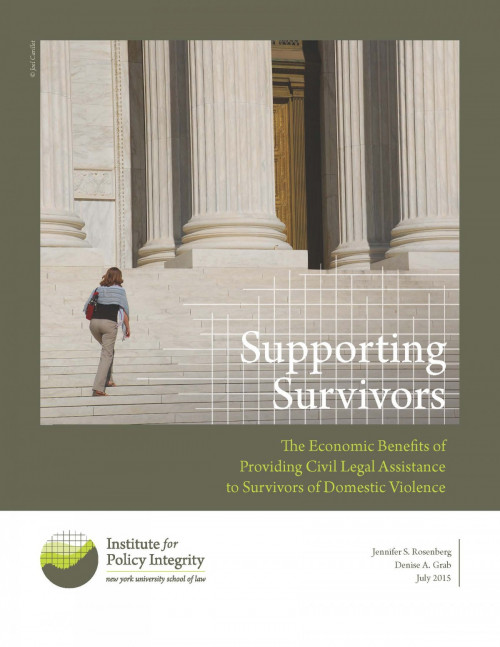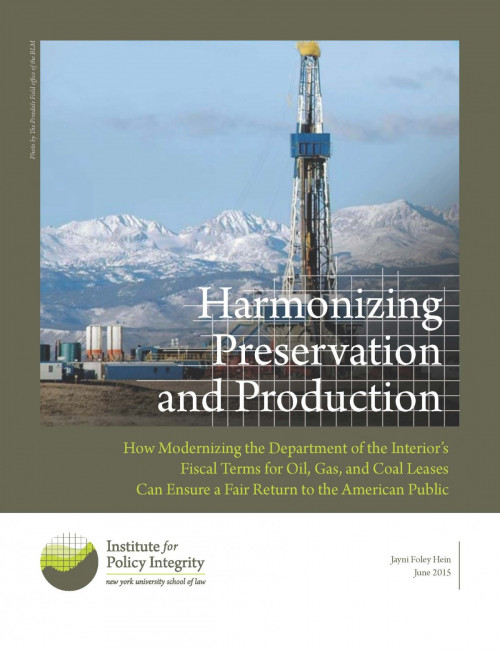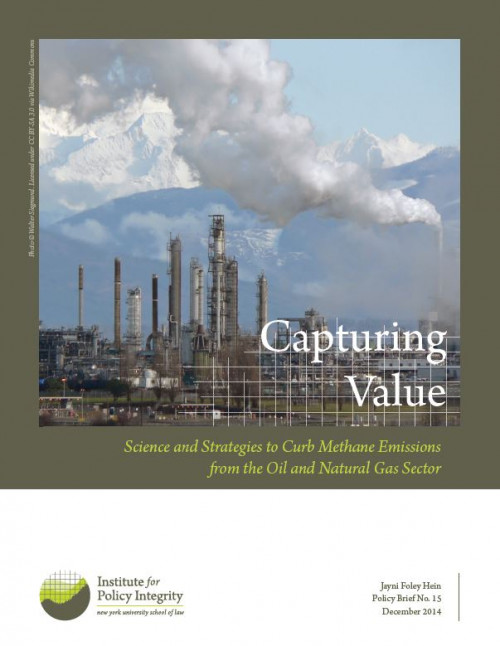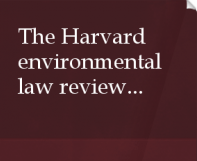The Institute for Policy Integrity produces a variety of publications. Our research reports develop in-depth research on our core issues, while our policy briefs and issue briefs provide focused analysis on more timely or particular topics. Our academic articles and working papers offer original scholarly research and analysis from established experts as well as fresh new voices.
Latest Publications
-

Supporting Survivors
The Economic Benefits of Providing Civil Legal Assistance to Survivors of Domestic Violence
Evidence indicates that the social costs of domestic violence extend far beyond the private costs borne by victims and their immediate families. Supporting Survivors analyzes the social costs of this public health problem and explores civil legal aid efforts, which have been shown to reduce rates of domestic violence by helping victims obtain protective orders and other services.
-

Harmonizing Preservation and Production
How Modernizing the Department of the Interior’s Fiscal Terms for Oil, Gas, and Coal Leases Can Ensure a Fair Return to the American Public
Leasing federal lands for drilling and mining generates a huge amount of revenue for the United States, but the Department of the Interior, which oversees these leases, uses an antiquated fiscal system that deprives taxpayers of hundreds of millions of dollars. Our report analyzes how the fiscal terms for oil, gas, and coal leases could be modernized to ensure a fair return to the American public.
-

Capturing Value
Science and Strategies to Curb Methane Emissions from the Oil and Natural Gas Sector
Methane, the primary component of natural gas, is a potent climate pollutant up to 86 times more powerful than carbon dioxide on a 20-year timeframe. Currently the United States loses at least 1 to 3 percent of its total natural gas production each year when methane is leaked or vented to the atmosphere. Federal regulations could reduce methane emissions by up to 50 percent at little or no net cost, using available technologies.
-

Interest Groups and Environmental Policy
Inconsistent Positions and Missed Opportunities
This Essay examines and explains the positions of the principal interest groups over the past four decades with respect to the two central questions of environmental policy: the appropriate policy goal and the instrument that should be used to carry out the policy. While environmental groups and industry have largely switched positions on the two central questions of environmental policy, the points at which their positions overlapped were fleeting, and opportunities to make substantial progress in rationalizing the system of environmental regulation have largely been unrealized.
-

Toward a More Rational Environmental Policy
This essay argues that U.S. environmental policy should operate in accordance with five major components of rationality: cost-benefit analysis; cost minimization; flexible market-based instruments; constraints on grandfathering; and the sensible allocation of decision-making authority between the federal government and the states. This past Term, the Supreme Court decided two significant cases, which together should be seen as producing a move toward rationality in environmental policy.
